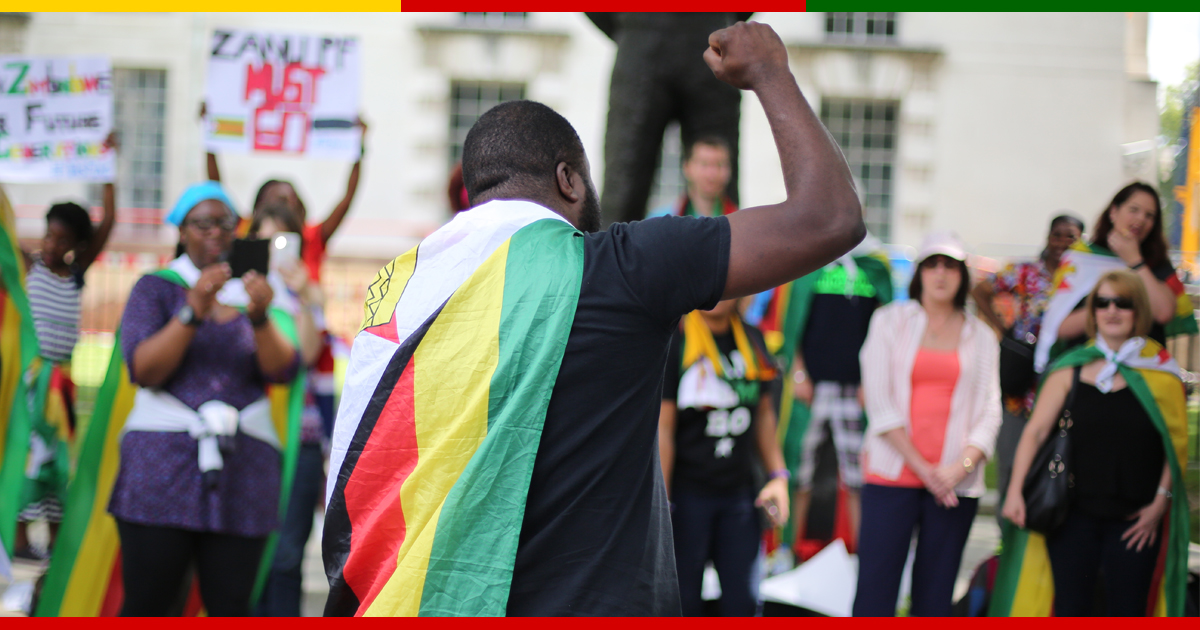The Centre for Human Rights, Faculty of Law, University of Pretoria is concerned with the passage of the Criminal Law (Codification and Reform) Amendment Bill H.B 15 of 2022 (Patriot Bill) in Zimbabwe’s House of Assembly. The Patriot Bill, which was passed on 31 May, is overbroad, curtails freedom of expression, suppresses freedom of association and assembly and restricts political participation. The Patriot Bill proposes, among other things, to criminalises meetings with foreign governments for purposes of planning military intervention or calling for economic sanctions. The Bill will become law only after the Senate, the second parliamentary house, adopts it, and if President Mnangagwa assents to it.
Background
On 23 December 2022 the Zimbabwe government gazetted the Patriot Bill. Just three months before crucial presidential and parliamentary elections, scheduled for 23 August 2023, it was passed by the lower house of Zimbabwe’s Parliament, with the required two thirds majority. In the past, the Zimbabwean government has habitually accused civil society activists and opposition party representatives of calling for the imposition of sanctions by the USA and the EU. The authorities in Zimbabwe have further accused dissenting voices of working with Western nations to topple or subvert a constitutionally elected government. This is because the ruling party leaders in Zimbabwe do not tolerate any criticism of their violations of human rights and the rule of law, high levels of corruption and shrinking of civic space.
The Patriot Bill states that it is improper for citizens and residents of Zimbabwe to entreat foreign governments to interfere in the country’s internal political affairs and implement measures that undermine the nation’s sovereignty and independence. In that regard, the Patriot Bill introduces the new offence of “wilfully injuring the sovereignty and national interest of Zimbabwe.” According to this offence any citizen or permanent resident of Zimbabwe who actively participates in a meeting whose objective is the planning of armed intervention, subverting or overthrowing a constitutionally elected government. This offence is equated to treason in terms of its gravity and penalty. Upon conviction the citizen or resident of Zimbabwe who exposes the government’s failures to foreign governments is liable to be sentenced to life imprisonment or the death penalty.
The Patriot Bill further provides that any citizen or resident who participates in a meeting whose objective the accused knows or reasonably believes to be for purposes of imposing or extending sanctions or a trade boycott shall be guilty of the offence of willfully damaging the sovereignty and national interest of Zimbabwe. It shall also be an offence if a citizen or resident of Zimbabwe attends any meeting convened or facilitated by a foreign government, which leads to the issuance of a travel or investment advisory discouraging foreign direct investments.
Impact on human rights and rule of law
If upon conviction, the court finds aggravating circumstances, the accused may be stripped of their citizenship, precluded from voting in national elections for at least five years or holding political office. Citizenship should not be easily taken away as this may lead to statelessness. The Patriot Bill’s provisions are overbroad as they have the effect of substantially restricting constitutionally guaranteed freedom of expression and association. Such overbroad provisions are invariably abused to persecute dissenting voices using the criminal justice system. The Bill is intended to silence vocal journalists, critics, civil society and opposition party activists and to stop them from having any meetings with foreign governments and their embassies. Political activists, civil society actors and journalists have a right to speak out on behalf of the vulnerable, marginalised and should not be hindered in exposing violations of human rights, rule of law and corruption.
The harsh or excessive penal provisions for willfully damaging Zimbabwe’s sovereignty and national interests will have a chilling effect on citizens and residents who are fighting for social justice, good governance and democratization. Reprisals such as citizenship stripping and exclusion from voting and holding political office are severe reprisals which will instil fear in the hearts of those who dare to engage embassies of foreign nations for development and governance projects. Activists have a right to engage development partners in situations where violations of human rights, the rule of law and democracy are occurring. The criminalization of free expression and association is an unnecessary and disproportionate response to addressing a lack of patriotism. Such restrictions are not justifiable in any open and democratic nation based on respect for human rights and the rule of law.
Calls to the Zimbabwe authorities
The Centre for Human Rights calls on the Senate not to adopt the Patriot Bill and the President not to sign the suppressive Bill into law as Zimbabwe prepares for elections in August 2023. The freedom of expression, association and political participation should be protected by the state, especially around election time. The authorities in Zimbabwe are urged to abide by the human rights standards guaranteed in the African Charter on Human and Peoples’ Rights and the International Covenant on Civil and Political Rights to which Zimbabwe is a state party.
The Centre for Human urges the government of Zimbabwe to adhere to the African Commission’s Declaration of Principles on Freedom of Expression in Africa, Guidelines on freedom of assembly and association and the Universal Declaration of Human Rights, key instruments which call on states to recognize, promote and protect fundamental freedoms of expression, association and assembly as well as the right to political participation. It should also uphold the provisions of its 2013 Constitution. Should the Bill be enacted and assented to, a constitutional challenge is more than likely.
For more information, please contact:

Professor of International Human Rights Law
Tel: +27 (0) 12 420 3228
frans.viljoen@up.ac.za


